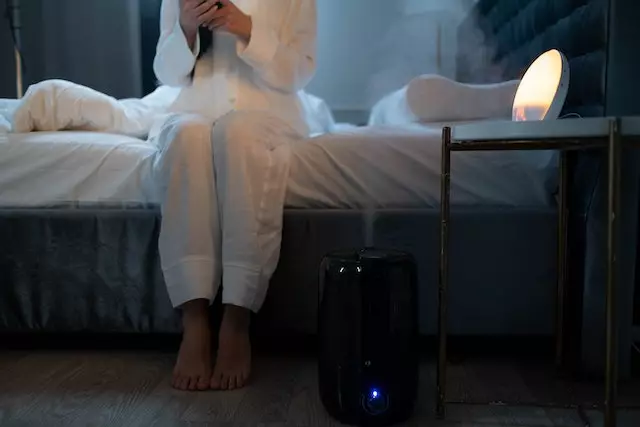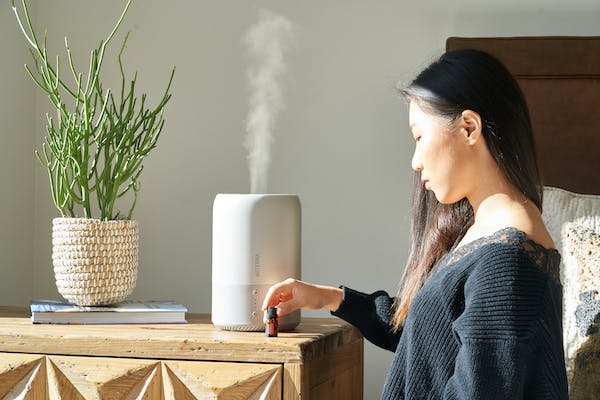Last Updated : 10-March-2023
The consumption of energy is rising daily. Electricity powers and controls everything. For the most part, we still rely on electricity or other forms of energy to go through our daily housework. Things like air filtration machines, warmers, ventilators, aroma sprayers, and dehumidifiers are examples of these supplementary or replacement items.
Dehumidifier: What Is It?
A dehumidifier is an equipment that removes excess moisture from the air. Water vapour in the air is condensed when the device pulls air from the room and passes it over a cooled coil. Water is collected and either held in a reservoir or drained out through a hose.
Apartment and studio living has become increasingly popular, and with good reason. More airflow is required in these restricted rooms than in open ones. Dehumidifiers are commonly used to lower the humidity in a home or other structure, which in turn helps to prevent the formation of mould and mildew, lessens allergens in the air and creates a more pleasant environment overall.

Dehumidifier Benefits
Dehumidifiers may be put to use in a variety of settings.
- A method of reducing humidity in a structure to stop the spread of mold and mildew.
- Reducing allergens in the air and thereby improving indoor air quality.
- Decrease the relative humidity of a room in order to make it more bearable.
- To remove water from a building following a flood or leak.
- Saving stored things from the damaging effects of excessive humidity.
- Reduce the potential for electrical problems in a home or other facility by bringing the relative humidity down to a safe level.
- Improving the effectiveness of air conditioners by lowering humidity levels.
Electronics and Energy Efficiency: What You Need to Know
Mechanisms at Work in a Dehumidifier
A dehumidifier takes air from a room and runs it through a cooled coil to remove moisture. Water vapor in the air condenses into droplets as it moves over the cooled coil. Water is collected in a reservoir or drained away through a hose after the drops have fallen.
The dehumidifier contains a fan to assist circulate the air and a humidistat to monitor the relative humidity in the space. The humidistat activates the dehumidifier on and off to keep the humidity where you want it.
When the air travels over the dehumidifier’s cooled coil, some models include a heating element to reheat the air. In frigid conditions, where the air may be too cold to adequately condense the water vapour, this can assist the dehumidifier to perform better.

To what extent do dehumidifiers drain electrical resources?
It’s important to consider both the dehumidifier’s size and its intended use when estimating its energy consumption. A dehumidifier’s hourly power consumption typically ranges from 500 to 1000 watts. Nevertheless, the actual energy consumption might differ considerably based on factors such as the room’s current humidity, the unit’s size, and the target humidity level. It is recommended that you evaluate the energy consumption of several kinds of dehumidifiers before making a purchase.
If you want to figure out how much electricity a dehumidifier will consume if you leave it on for an hour, you’ll need to know how many watts it uses. A dehumidifier’s wattage may be found on a label on the back or side of the device and represents the amount of electricity required to run the appliance.
With the watts in hand, you can plug the numbers into the following equation to get an estimate of the dehumidifier’s hourly energy consumption:
- Power (watts) = Wattage (watts) * Time (hours)
- For example, if a dehumidifier has a wattage of 500 watts and it runs for 1 hour, the power used would be 500 watts * 1 hour = 500 watt-hours.
- To convert watt-hours to kilowatt-hours, you can divide the watt-hours by 1000. For example, 500 watt-hours are equivalent to 0.5 kilowatt-hours.
Calculation/Cost for 24 Hours Using of Dehumidifier
To calculate the energy used by a dehumidifier running for 24 hours, you will need to know the wattage of the dehumidifier and the price of electricity in your area.
First, you can use the following formula to calculate the power used by the dehumidifier running for 24 hours:
- Power (watts) = Wattage (watts) * Time (hours)
- For example, if a dehumidifier has a wattage of 500 watts and it runs for 24 hours, the power used would be 500 watts * 24 hours = 12,000 watt-hours.
- Next, you can use the following formula to calculate the energy cost of running the dehumidifier for 24 hours:
- Energy cost (dollars) = Power (watt-hours) * Cost of electricity (dollars/kWh)
- For example, if the cost of electricity is $0.10 per kilowatt-hour and the dehumidifier uses 12,000 watt-hours in 24 hours, the energy cost would be 12,000 watt-hours * $0.10/kWh = $1.20.
Note that the cost of electricity can vary significantly depending on your location, so you will need to use the current rate for your area.
Closing Remarks
To sum up, the amount of energy required to run a dehumidifier is proportional to the size and functionality of the device. A dehumidifier’s hourly power consumption typically ranges from 500 to 1000 watts. Nevertheless, the actual energy consumption might differ considerably based on factors such as the room’s current humidity, the unit’s size, and the target humidity level. It is recommended that you evaluate the energy consumption of several kinds of dehumidifiers before making a purchase.
Can I Run My House on Solar Power Only?
FAQs
How much energy do dehumidifiers typically use?
The energy consumption of dehumidifiers can vary depending on the specific model and size, but on average, they use around 5-7 watts per hour.
Can dehumidifiers save me money on my energy bill?
Yes, by reducing the humidity in your home, dehumidifiers can help lower your air conditioning usage, which can result in lower energy costs.
Are there any dehumidifiers that are more energy-efficient than others?
Yes, some dehumidifiers are designed to be more energy-efficient than others. Look for models with Energy Star ratings, which indicate that they meet certain energy efficiency standards set by the government.
Can I reduce the energy usage of my dehumidifier?
Yes, you can reduce the energy usage of your dehumidifier by using a humidistat to control the humidity level in your home, and by choosing a smaller dehumidifier for smaller rooms.
Can I compare the energy usage of different dehumidifiers?
Yes, most dehumidifiers will have a label that indicates their energy usage, measured in watts per hour, which you can use to compare the energy usage of different models.
Do dehumidifiers use more energy when they are running continuously?
Yes, dehumidifiers use more energy when they are running continuously because they are constantly removing moisture from the air.
Are desiccant dehumidifiers more energy-efficient than compressor dehumidifiers?
It depends on the specific model and the room size, but generally, desiccant dehumidifiers tend to use less energy than compressor dehumidifiers.
Can using a dehumidifier in the summer help lower my energy bill?
Yes, by reducing the humidity in your home, a dehumidifier can help lower your air conditioning usage, which can result in lower energy costs during the summer months.
